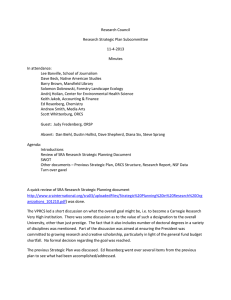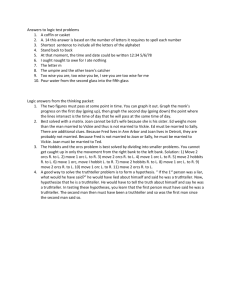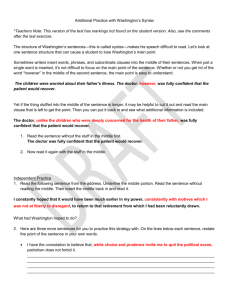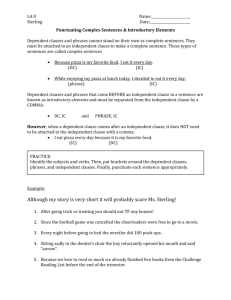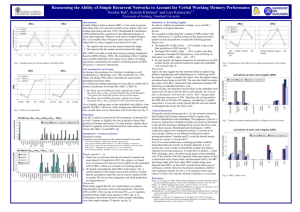Please, feel in you abstract title here
advertisement
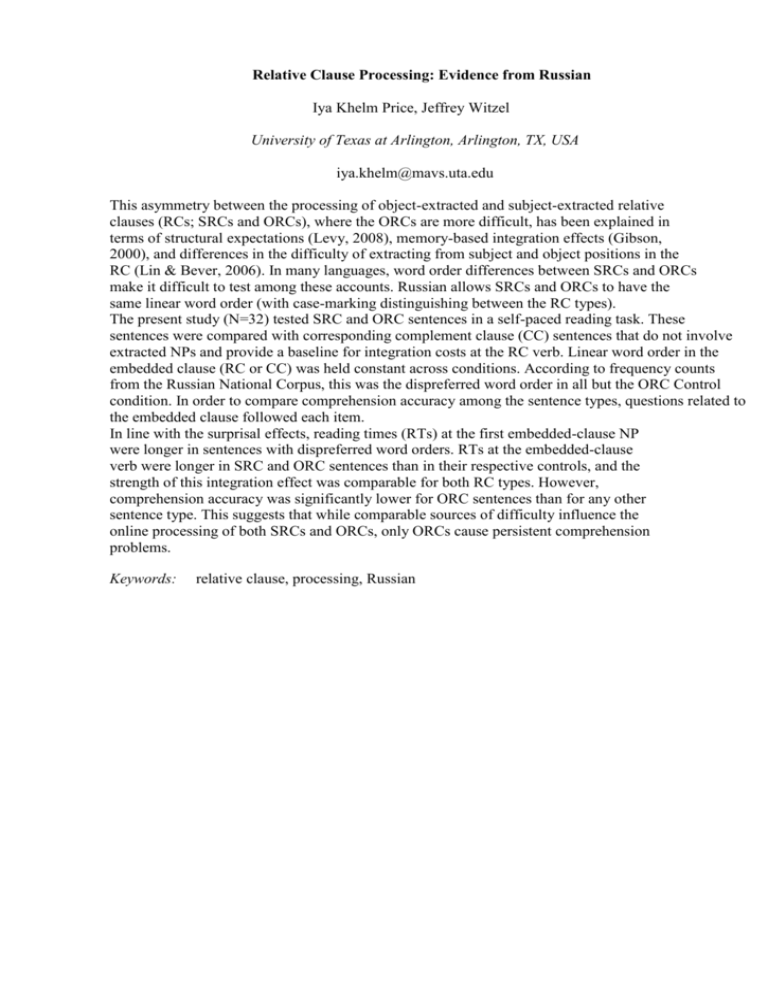
Relative Clause Processing: Evidence from Russian Iya Khelm Price, Jeffrey Witzel University of Texas at Arlington, Arlington, TX, USA iya.khelm@mavs.uta.edu This asymmetry between the processing of object-extracted and subject-extracted relative clauses (RCs; SRCs and ORCs), where the ORCs are more difficult, has been explained in terms of structural expectations (Levy, 2008), memory-based integration effects (Gibson, 2000), and differences in the difficulty of extracting from subject and object positions in the RC (Lin & Bever, 2006). In many languages, word order differences between SRCs and ORCs make it difficult to test among these accounts. Russian allows SRCs and ORCs to have the same linear word order (with case-marking distinguishing between the RC types). The present study (N=32) tested SRC and ORC sentences in a self-paced reading task. These sentences were compared with corresponding complement clause (CC) sentences that do not involve extracted NPs and provide a baseline for integration costs at the RC verb. Linear word order in the embedded clause (RC or CC) was held constant across conditions. According to frequency counts from the Russian National Corpus, this was the dispreferred word order in all but the ORC Control condition. In order to compare comprehension accuracy among the sentence types, questions related to the embedded clause followed each item. In line with the surprisal effects, reading times (RTs) at the first embedded-clause NP were longer in sentences with dispreferred word orders. RTs at the embedded-clause verb were longer in SRC and ORC sentences than in their respective controls, and the strength of this integration effect was comparable for both RC types. However, comprehension accuracy was significantly lower for ORC sentences than for any other sentence type. This suggests that while comparable sources of difficulty influence the online processing of both SRCs and ORCs, only ORCs cause persistent comprehension problems. Keywords: relative clause, processing, Russian
